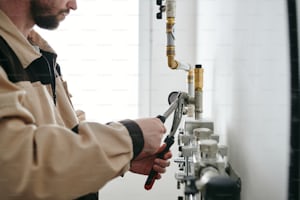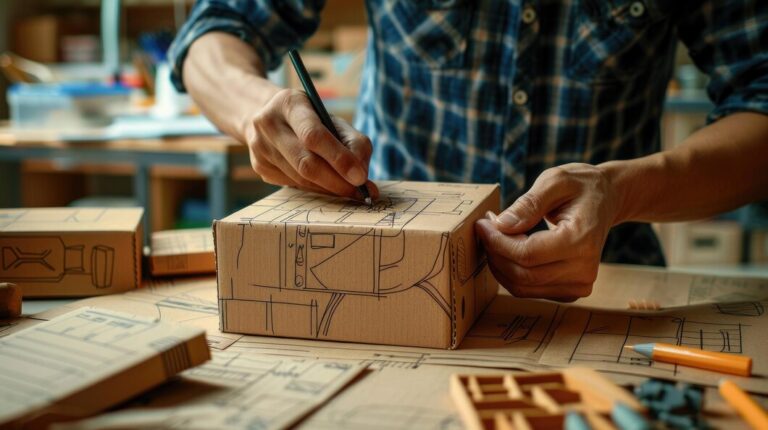The Essential Guide to Pressure Valves in Industrial Applications
Pressure valves are significant in different industries due to their ability to control pressure thus adequate handling equipment and machinery. Manufacturing industries such as BoP plants, power generation stations, technological research industries, or industries that necessitate intricate systems require durable and efficient pressure valves. Reading this article, readers will get acquainted with the general information concerning pressure valves, the main types of these valves, and their application; the ways that prove why the proper choice of a valve is the key to safety.
What Is a Pressure Valve
A pressure valve is a control element that operates to reduce or control pressure within a particular network with the objective of safeguarding an assembly or a network from breakage. These valves help prevent disasters that may be caused by pressure build-up by permitting a gradual release of pressure when it reaches a set limit such as leaks or even explosions. It is common in industries where pressures are high since it has dangerous effects on the human system.
Organizations within the oil and gas, chemical process, as well as water and wastewater facilities all use pressure valves to control pressure, maintain equipment and protect personnel. This paper recognizes that the type of pressure valve selected, is likely to affect the firm’s operational efficiency and safety.
Types of Pressure Valves
There are many types of pressure valves with each type being designed for certain uses and pressure levels. Here are some common types used in industrial settings:
- Relief Valves: These are made in such a way that they are supposed to open at a certain pressure, and release excess fluid to bring down pressure inside the system. A relief valve is commonly applied to operate in liquid systems, and its relief of pressure is usually constant.
- Safety Valves: Safety valves discharge gas or steam and are utilized in applications where high pressure in steam or gas is employed. Safety valves are designed in a manner that they automatically open whenever the pressure level rises in the system to a certain level that may cause damage.
- Pressure Reducing Valves: These valves are helpful to control or to sustain the downstream pressure at a required value by throttling the inlet pressure. Due to the ability to maintain a constant outlet pressure they are mainly applied in water systems and HVAC systems.
- Back Pressure Valves: Back Pressure Valve is used to hold upstream pressure great within a particular magnitude in pipelines and pumping systems to keep the pressure stable.
- Vacuum Pressure Valves: These valves are typically suitable for use in applications which require vacuum. It is used to guard against high pressure build up in vacuum systems.
The selection of the proper type of the pressure valve depends on the type of the pressure, nature of the working fluid, whether it is a liquid, gas or the steam.
How Pressure Valves Work
Pressure valves work based on the principle that is associated with the detection of pressure variations in a specific system. Innovative: If the pressure above the valve goes high beyond the valve absolute pressure set point, the valve opens to release the excess pressure. There is the guarantee that as soon as the pressure returns to the anticipated determinant, the valve shuts immediately. This auto-action just makes certain that pressure is kept to the optimal ranges at any given point in time.
There is always the use of springs or a diaphragm to act as a pressure control in most pressure valves. In relief and safety valves, the spring gives a closed position to the valve until the pressure attains the set point then the valve opens. In the case of pressure reducing valves, the diaphragm is affected by the amount of pressure downstream and codes the valve as necessary.
Applications of Pressure Valves
Pressure valves are so important in industries because their roles include sustaining safety and managing pressure in different industrial processes. Here are some key sectors where pressure valves are essential:
– Oil and Gas Industry: While pressure relief valves protect against overpressure and control process loops, avoidance of piping and process units’ rupture or leak.
– Chemical Processing: Chemical reactors operate at high pressures, and when combined with the volume of chemicals involved, can be very hazardous, so valves are also used for this purpose.
– Water Treatment: Pressure control valves operate and control the water pressure and or water flow within the water supply system to minimize pipe erosion.
– Power Generation: Gates of the steam pressure valves are significant in power plants to regulate pressures in boilers and turbines.
Safety relief valves are essential for safe and efficient functions in these industries, decrease in maintenance expense and increase in equipment services lifecycle.
Selecting the Right Pressure Valve
The type of pressure valve to use has to be selected in order to optimize functionality and performance of the device. Factors to consider when choosing a pressure valve include:
– Pressure Range: Verify the operating pressure of the system to avoid either the valve or the system to breakdown.
– Media Compatibility: The material of the valve must also match the medium, liquid, gas or the steam in order to prevent corrosion or damage.
– Size and Flow Capacity: Correcting for valve sizing is one of the most vital requirements to achieve the best results as well as avoiding occurrence of pressure drops in the system.
– Regulatory Compliance: Some industries have very detailed regulatory standards when it comes to the pressure control equipment. Check that the valve will meet the necessary safety requirement for your application.
For more information on advanced valve solutions, including pressure valves for industrial applications, visit Dombor’s comprehensive selection of valves https://www.dombor.com/ru/product-category/more-valves/
Conclusion
Pressure valves are thus important pressure control and safety instruments in most industries. The pressure valve is an essential commodity for the B2B business companies that belong to the sectors like oil and gas, chemical processing, and water treatment where accuracy and efficiency play an outstanding role. Knowledge of the different categories of pressure relief valves and the likely uses will enable an organization to make correct decisions in improving the dependability of such systems as well as safeguarding the expensive equipment and people.
Whether you are aiming at getting a relief valve, a safety valve or specific back pressure valve, using the right quality products, right for your industries will enhance your operation objectives, and provide long term safety.







